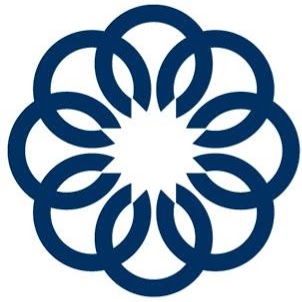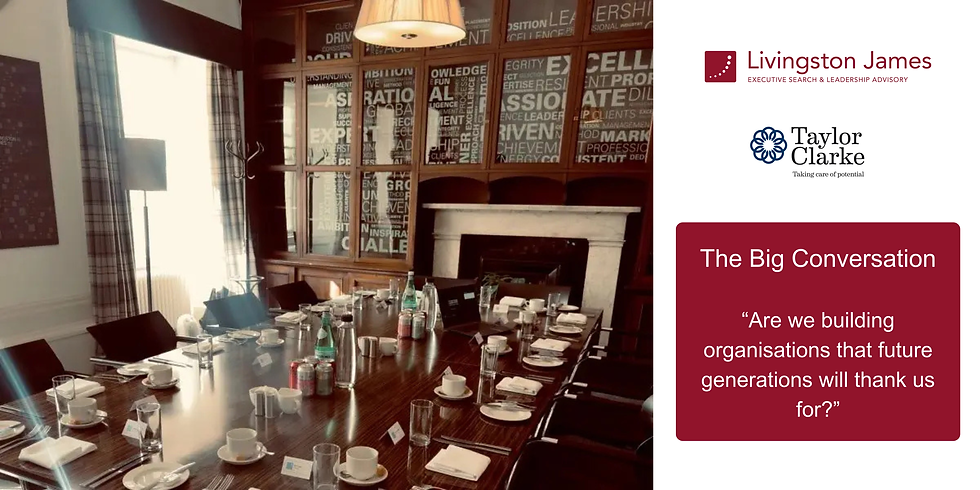The Future of Hybrid Work
- Taylor Clarke

- May 27, 2021
- 4 min read
Updated: Jun 2, 2021
By Lyle English, Associate, Taylor Clarke

Never before is has the term ‘VUCA World’ been more relevant than today.
As we look around us, listen to news casts, read social media and experience the impact of COVID19 and an on-going series of lockdowns on everyday life, we are most definitely living and working in a world that is Volatile, Uncertain, Complex and Ambiguous.
In nearly every part of the world there is some degree of volatility. There is so much uncertainty as to how the economy, business, the health service and education will ever fully recover. There’s a whole new world of technology, adjusting to a combination of remote and on-site working and the impact that has on maintaining a work/life balance. There are no exact answers at the moment, no black or white and decisions are based on the now rather than having the perfect answer
All of this has resulted in a new way of working, one such model approach being hybrid working which, actually, has always existed. Its popularity though has been turbocharged by the pandemic and subsequent on-site/off-site working experiments. There isn't yet a clear definition, but at its core, it's an arrangement in which an individual, team or organisation works part of their time at the workplace and part remotely.
Some refer to it as the ‘new’ normal. Others, the ‘next’ normal. Considering where we currently find ourselves, perhaps there will be ‘no’ normal going forward.
Irrespective of the model preferred, two key principles must be subscribed to: at all times - being Professional whilst also, always, being Personal. And, in a world where we’re all adjusting to working in different ways, the ‘person’ part of personal becomes even more important.
No matter how organisations choose to combine ‘working from home’ with ‘working on-site’, there must still always be a focus on the mission, the vision, the values and the strategy of the team or organisation. Results still need to be achieved, objectives met, service standards maintained and stakeholder expectations exceeded. Being Professional is still, and will always be, critically important.
Running alongside though is the equally [more important?] principle of being Personal. So, what does that look like, on a day to day basis? Put very simply, it’s bearing in mind, that, at all times, we are working with human beings who have human being needs, just like you and me.
Specifically, this is what we should be doing in a very different way of working:
Putting in place a rhythm of communication – both at a team level as well as on a one-to-one basis. People feel far away, not because of location but sometimes due to the amount of time it takes to get an answer from someone. People feel ‘close’ when communication is predictable.
Setting standards – setting expectations in three areas: what are normal working hours? – how long will it take to get back to each other? – who do I notify when I’m not available? Let the boss know, team email, shared calendar?
Trust your team – in 99% of cases, people are doing their best, they want to balance their work with other priorities and responsibilities. They must feel you are there to support them, wherever they are working, rather than monitor their every move. Instead of micro-managing them, rather focus on outcomes
Create the time for personal interaction – ‘Wwhat was the best part of your weekend?’ is always a good way to start that one-on-one. Create an online area, perhaps a WhatsApp group to discuss sports, movies, share BBQ pics, pics of pets. Arrange a team breakfast, lunch, coffee. Once a week, set up a Zoom open-plan office. With just a little thought there are many ways by in which you can create a more personal atmosphere.
Provide work guidelines – our people need on-going clarity when working in a new model – they may need to get comfortable in working from home and/or in the office in the ‘no normal’ mode of work.
Set expectations – have a conversation with the team around hours vs outcomes, importance of routine, setting a cut-off time, creating the time for family responsibilities, encourage people to discuss expectations within the family, looking after their mental wellbeing and physical exercise.
Leaders leading in a very different environment need to ensure a healthy balance between PROFESSIONALISM and PERSONALISM.
By being professional, respect will increase, business reputation will flourish and conflict will be minimised.
Being personal is about caring for your people and meeting their human being needs. In the words of the late Jack Welch: ‘You’ve got to love your people’
To support managers leading hybrid teams, we have launched a short, (1.5 hrs) virtual, workshop Leading Hybrid Teams: ‘New Normal’ or ‘No Normal’?
This will be of particular interest to those working in HR, OD and Talent Manager roles who are supporting people managers in organisations where a hybrid model is being used or considered as the way forward.
This is a live, virtual programme that will take place via Zoom. It is open to participants from any organisation. Find out more here

For the past 23 years, Lyle has developed significant experience as a much sought after leadership consultant, facilitator and coach. He has worked across a wide range of sectors both locally and internationally. Typically he works with first-time Team Leaders through to Middle Manager and SLTs Lyle’s mission is to help ‘Managers become Confident Leaders’ and because of his hands-on management experience and the work he does in the area of leadership skills development, he can teach from the ‘head’ as well as the ‘heart’ Lyle is highly regarded by his clients as well as the training providers with whom he is associated. His strengths give him an insight into leadership and management development, particularly with regards to performance coaching and team development. His best work is when he is helping managers new to leadership discern the subtle differences between these two disciplines and uses this as a platform to introduce the larger changes that leadership demands. He is a past ‘Business Person of the Year’ award winner, is the recipient of various community awards and is a volunteer business mentor with The Prince’s Trust.



